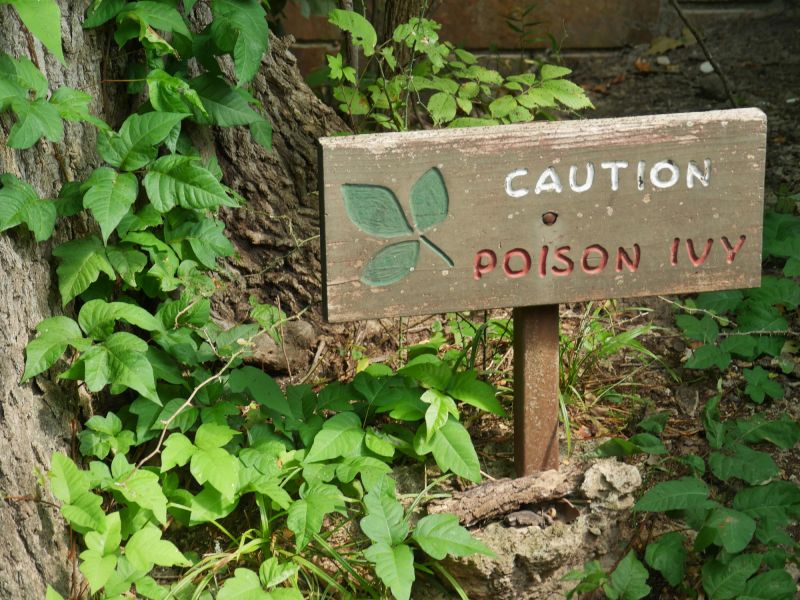Top-Rated Poison Ivy Removal Products To Soothe and Heal Skin
Explore highly rated remedies that help soothe skin irritation and promote healing after poison ivy contact.
 Poison ivy is a common plant that can cause skin irritation and allergic reactions upon contact. Effective removal requires products that can safely and efficiently eliminate the plant or soothe affected skin. Many options are available, ranging from topical treatments to specialized tools designed for safe removal. Selecting the right product depends on the severity of exposure, the area involved, and personal preferences for application methods.
Poison ivy is a common plant that can cause skin irritation and allergic reactions upon contact. Effective removal requires products that can safely and efficiently eliminate the plant or soothe affected skin. Many options are available, ranging from topical treatments to specialized tools designed for safe removal. Selecting the right product depends on the severity of exposure, the area involved, and personal preferences for application methods.
Top Overall Option
Comprehensive Poison Ivy Removal Kit
A versatile kit that includes protective gloves, plant scrapers, soothing creams, and cleaning solutions designed to help manage poison ivy exposure safely and effectively. This all-in-one set offers a practical solution for both prevention and treatment, making it suitable for outdoor enthusiasts and professionals alike.
Types of Products For Poison Ivy Removals
Topical Steroid Creams
Creams containing hydrocortisone or other steroids to reduce itching and inflammation caused by poison ivy contact.
Antihistamine Ointments
Ointments formulated to block allergic reactions and soothe skin irritation from poison ivy exposure.
Plant Scrapers and Removers
Tools designed to physically remove poison ivy plants or residues from skin and clothing safely.
Protective Gloves
Heavy-duty gloves that prevent skin contact with poison ivy during outdoor work or plant removal.
Barrier Skin Sprays
Sprays that create a protective layer on the skin to reduce the risk of contact with the plant.
Soothing Aloe Gels
Gels that help calm irritated skin and reduce redness after contact with poison ivy.
Cleaning Solutions
Specialized cleansers for removing urushiol oil from skin and clothing to prevent further reactions.
Preventive Clothing
Protective clothing such as long sleeves and pants designed to minimize skin exposure in areas with poison ivy.
Plant Identification Apps
Digital tools that help identify poison ivy and similar plants to avoid accidental contact.
Educational Guides
Printed or digital guides with tips on safe removal and treatment of poison ivy.
Outdoor Workwear
Durable clothing designed for outdoor activities in poison ivy-prone areas.
Home Remedies
Natural solutions like baking soda pastes or oatmeal baths to soothe skin after exposure.
Popular Choices
Widely used topical treatments to help reduce itching and inflammation from poison ivy contact.
Pre-moistened wipes designed to remove urushiol oil from skin quickly after exposure.
Heavy-duty gloves favored by outdoor workers for safe handling of plants in poison ivy areas.
Popular apps that assist in identifying poison ivy to prevent accidental contact.
Commonly used for soothing skin irritation caused by poison ivy reactions.
Sprays that create a protective layer on the skin, reducing contact risk during outdoor activities.
All-in-one kits that include tools and treatments for managing poison ivy exposure safely.
Clothing designed for outdoor work to minimize skin exposure to poison ivy plants.
Remedies like oatmeal baths or baking soda pastes used by some for skin relief.
Specialized cleansers for removing urushiol oil from skin and clothing surfaces.
Informative resources to learn about identification and safe removal practices.
Durable clothing to protect skin during outdoor activities in poison ivy areas.
Topical solutions such as creams and ointments are frequently used to alleviate itching and inflammation caused by poison ivy. These products often contain ingredients like hydrocortisone or antihistamines to reduce allergic reactions. For physical removal, tools like plant scrapers or gloves with reinforced protection can help eliminate the plant from the skin or surrounding areas without causing further irritation.
In addition to direct removal and treatment products, there are also preventive options like barrier creams or sprays that can help reduce contact with the plant. Proper clothing and protective gear are also essential when working in areas where poison ivy is present. Combining these products with safe work practices can minimize the risk of developing severe skin reactions.
When choosing products for poison ivy removal, it is important to consider the ease of use, safety features, and how well they address specific needs such as soothing irritated skin or physically removing the plant. Always follow manufacturer instructions and consult healthcare providers if reactions are severe or persistent. With the right combination of products and precautions, managing poison ivy exposure can become a safer and more manageable process.
Key Buying Considerations
- Type of product suited for your specific needs, whether for removal, treatment, or prevention.
- Ease of application and whether the product is suitable for all skin types.
- Safety features, including non-toxic ingredients and protective gear compatibility.
- Effectiveness of the product in reducing itching, inflammation, or removing urushiol oil.
- Duration of protection or relief offered by the product.
- Ease of use and whether the product requires special handling or preparation.
- Compatibility with other treatments or products you may already use.
- Shelf life and storage requirements to ensure product efficacy over time.
- User reviews and ratings to gauge real-world effectiveness and safety.
- Cost considerations relative to the size and scope of the product.
- Availability of the product for quick access in case of urgent needs.
- Environmental safety and disposal instructions, if applicable.
- Brand reputation and adherence to safety standards.
- Additional features such as waterproof clothing or multi-purpose kits.
- Instructions for use and whether they are clearly detailed and easy to follow.
